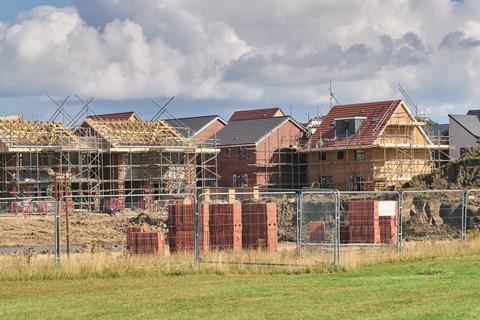Disruption is such a 21st-century word. I’m not talking about stock market flash crashes or the Grayling effect on rail services, but something much bigger that can affect almost every aspect of our daily lives.

Real estate will be profoundly affected by 21st-century disruption. The rise of e-tailing, demise of the high street and emergence of data centres and logistics warehouses as new asset classes are just a few early signs of real estate disruption.
While many are aware of the first seismic rumbles of disruption, most people are probably unsure of what to do about it. Our reactions are like those you might observe in the first few seconds of an earthquake. There are the ‘ignorers’ who believe the shaking is minor and will soon pass; those who freeze, aware of possible disaster but unsure what to do; those who wait for other people to make the first move so they can follow; and those who expend a lot of energy panicking in a completely fruitless – or even dangerous – way. Of more interest are the few who remain calm and act decisively, intelligently and with purpose.
But it can be hard to distinguish between the ‘panickers’ and rational actors. It can seem as if the whole village is following the wrong people or acting irrationally. The global real estate village is no exception.
One reason for this is that most of the thinking and action around disruption focuses on tech. But 21st-century disruption also stems from changing demographics, shifts in global power, social norms, environmental pressures and global investment and finance. These disruptors constitute the capacity for revolution; as a recent Forbes article put it, “uprooting and changing how we think, behave, do business, learn and go about our day-to-day lives”.
The fragmented nature of the real estate village means few can see the big picture. It is as if all the experts have a very detailed knowledge of their own piece of the jigsaw – their locality and sector – but it doesn’t yet all fit together. So everyone tries to digitise their own jigsaw piece.

Young digital natives who know little about real estate fundamentals are being led by baby boomers who know little about new technology. Consequently, some very powerful new technology is being retrofitted to 20th (or even 19th) century systems rather than realising new and hitherto unthought-of ways of relating to the built environment.
It sometimes seems that every industry player is claiming to be a proptech firm, based on the fact that they are in some kind of real estate business, use computers or know what an algorithm is. Unissu has identified nearly 7,000 proptech companies – 1,501 in marketing alone – and 1,214 trying to sell software as a service to the real estate industry. Surely most are duplicating each other’s efforts – and most must be destined to fall by the wayside.
So, while it is common for all of us to mistake innovation for disruption, the real estate industry seems to do so with absurd regularity. We all need to take a good look at what the problems are before rushing headlong into solutions.
To do this, we need to rethink real estate from multiple perspectives rather than the entrenched viewpoints of just one aspect of the industry. In taking a holistic as well as digital approach, we may find that optimal outcomes can change not only the nature of real estate business, but the way we all relate to and interact with the built environment in much broader, and hitherto unimagined, ways. That is how we will reap rewards from the pain of 21st-century real estate disruption.
Yolande Barnes is chair of UCL’s Bartlett Real Estate Institute





























No comments yet